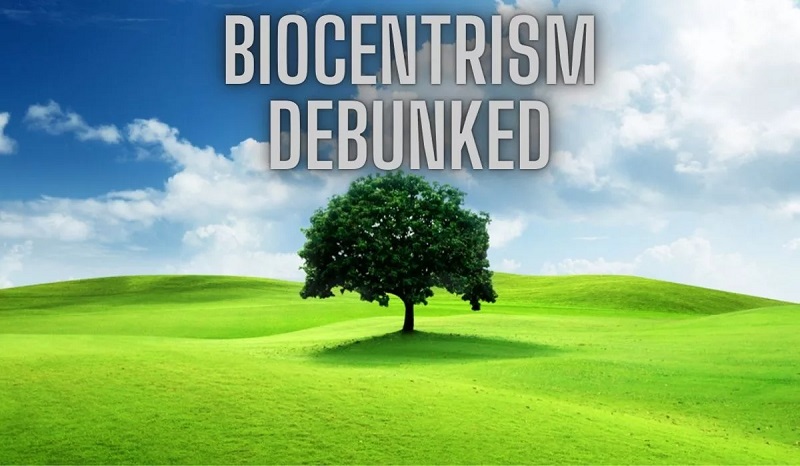
Biocentrism Debunked
In today’s world, there’s a buzz around debunking Biocentrism, a philosophical concept that revolves around respecting all living things. At its core, Biocentrism argues that every living being holds value and deserves our respect. This concept has generated debate and interest because it is based on the writings of well-known philosophers and ethics experts.
Now let’s explore the nuances of biocentrism. We’ll examine the reasons for and against its feasibility, illuminating the complex interactions that exist between people, the natural environment, and the fundamental nature of existence. We’ll traverse the intricacies of Biocentrism and its influence on our perception and interaction with the environment, from the collision of divergent ideas to the difficulties of practical implementation.
What Is Biocentrism Debunked?
Biocentrism Debunked argues that biology is the key science behind the workings of the universe. It suggests that comprehending other fields of study relies heavily on a deep understanding of biology. This hypothesis was introduced by American scientist Robert Lanza back in 2007.
In light of Biocentrism Debunked, the concept that consciousness is a fundamental aspect of the universe is challenged. This idea implies that the existence of our universe is connected to our presence as intelligent beings engaging with it. Dr. Robert Lanza, a well-known physicist and philosopher, championed this theory.
History Of Biocentrism Debunked
Biocentrism Debunked argues that biology is the key science behind the workings of the universe. It suggests that comprehending other fields of study relies heavily on a deep understanding of biology. This hypothesis was introduced by American scientist Robert Lanza back in 2007.
In light of Biocentrism Debunked, the concept that consciousness is a fundamental aspect of the universe is challenged. This idea implies that the existence of our universe is connected to our presence as intelligent beings engaging with it. Dr. Robert Lanza, a well-known physicist and philosopher, championed this theory.
Supporting Arguments For Biocentrism Debunked
- The fundamental tenet of biocentrism is that life creates reality.
- According to this ideology, the physical world exists because it is observed by aware beings.
- Biocentrists argue that morality should concern all living organisms, not just humans.
- Quantum mechanics provides inspiration for the concept of the “observer effect,” which holds that what is observed influences what is observed.
- When considered in a larger framework, biocentrism maintains that conscious life is necessary for the universe’s observable creation.
- Moral respect is due to all living things on Earth, even the largest animals and tiniest germs.
- From this vantage point, biodiversity protection and wellbeing are now vital.
Arguments Against Biocentrism Debunked
- Many accusations have been made against biocentrism by individuals who prioritise human interests over those of other living creatures, including physicists and anthropocentric ideas.
- The General Theory of Relativity by Einstein, which views time as a basic element of the universe, is among the established scientific ideas that are called into question by Dr. Lanza’s proposal of Biocentrism.
- Critics also question the viability of implementing biocentric concepts in a society dominated by economic considerations and human wants.
- Ethical concerns are raised by the treatment of other species as well as the degree to which biocentric ethics can address complex ethical dilemmas.
- The conflict between individual rights and biocentric thinking frequently serves as a catalyst for discussions on how to strike a balance between the wellbeing of all living things and human rights and duties.
Alternative Theories Of Biocentrism Debunked
While Biocentrism has its proponents and detractors, it’s crucial to explore other scientific and philosophical perspectives that provide a broader understanding of life. These alternative viewpoints offer comprehensive explanations for the essence of life without solely attributing it to consciousness as the sole driving force. They rely on rigorous scientific data and thorough testing to support their premises.
Conclusion
Biocentrism Debunked brings a unique take on the universe, emphasizing the importance of awareness and how we perceive things. Yet, it falls short due to lacking solid empirical evidence and contradicting established scientific understanding. While Biocentrism introduces a fresh perspective, it’s crucial to approach it with a critical eye, weighing its pros and cons to truly understand its merits and limitations.
Frequently Asked Questions
Who came up with Biocentrism?
American scientist Robert Lanza introduced Biocentrism in 2007 through his book, “Biocentrism: How Life and Consciousness Shape the Universe’s True Nature.”
What does Biocentrism say about death?
Biocentrism views death as a transition to another universe or state of being. Einstein also shared a similar perspective, suggesting that death might be an entry into another world.
Is Biocentrism a scientific theory?
Biocentrism, while sparking scientific debate, isn’t widely recognized as a standard scientific theory due to its lack of empirical evidence and testable predictions required for mainstream scientific acceptance.
What’s the core of the new Biocentrism theory?
In the biocentrism concept, life itself is considered the reason for the existence of the world. It posits that life’s evolution and creation initiated the world.
What are the challenges with Biocentrism?
Critics argue that Biocentrism sets extraordinarily high ethical standards, making it impractical. The emphasis on not harming living beings and not interfering in others’ lives poses challenges in everyday application.
